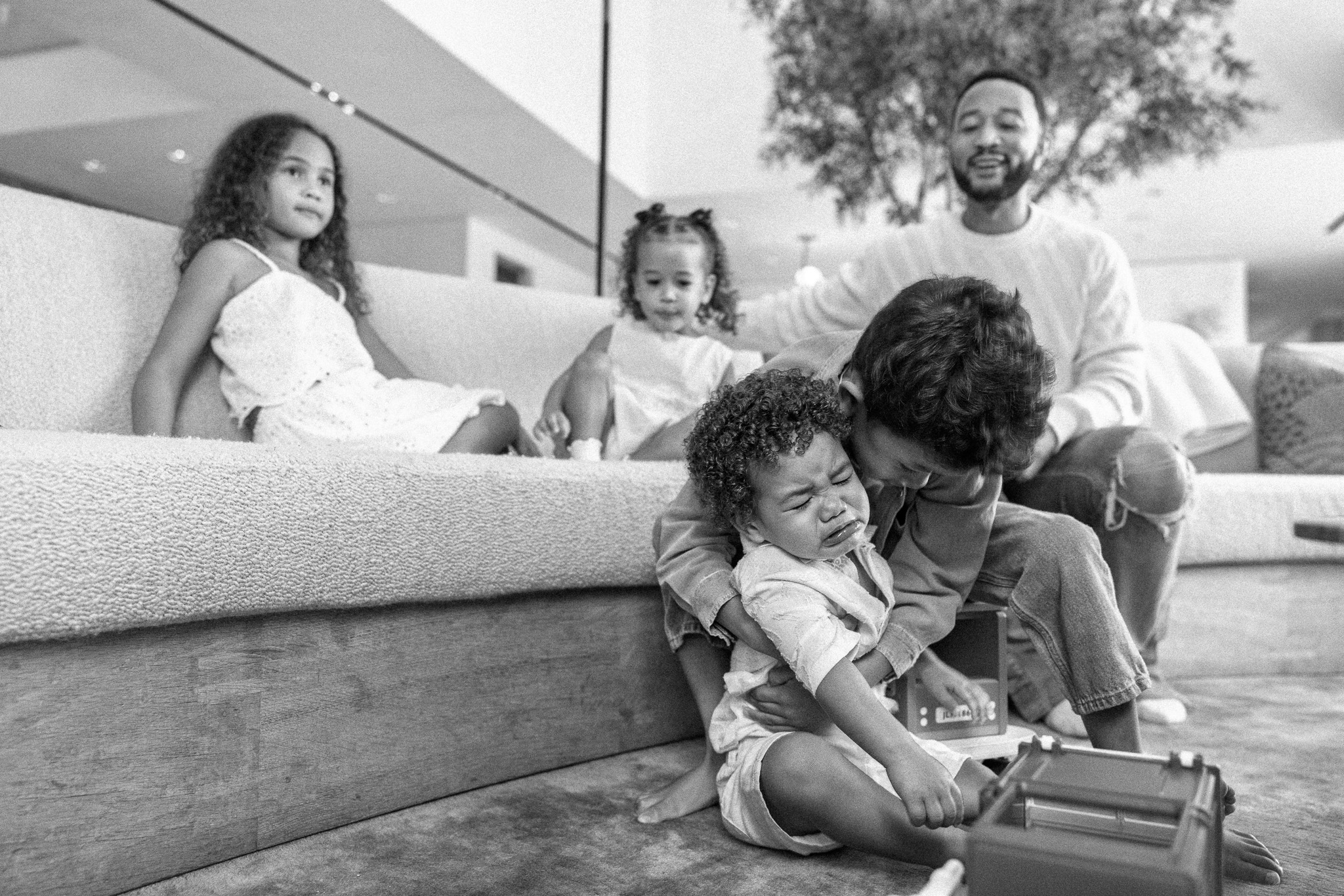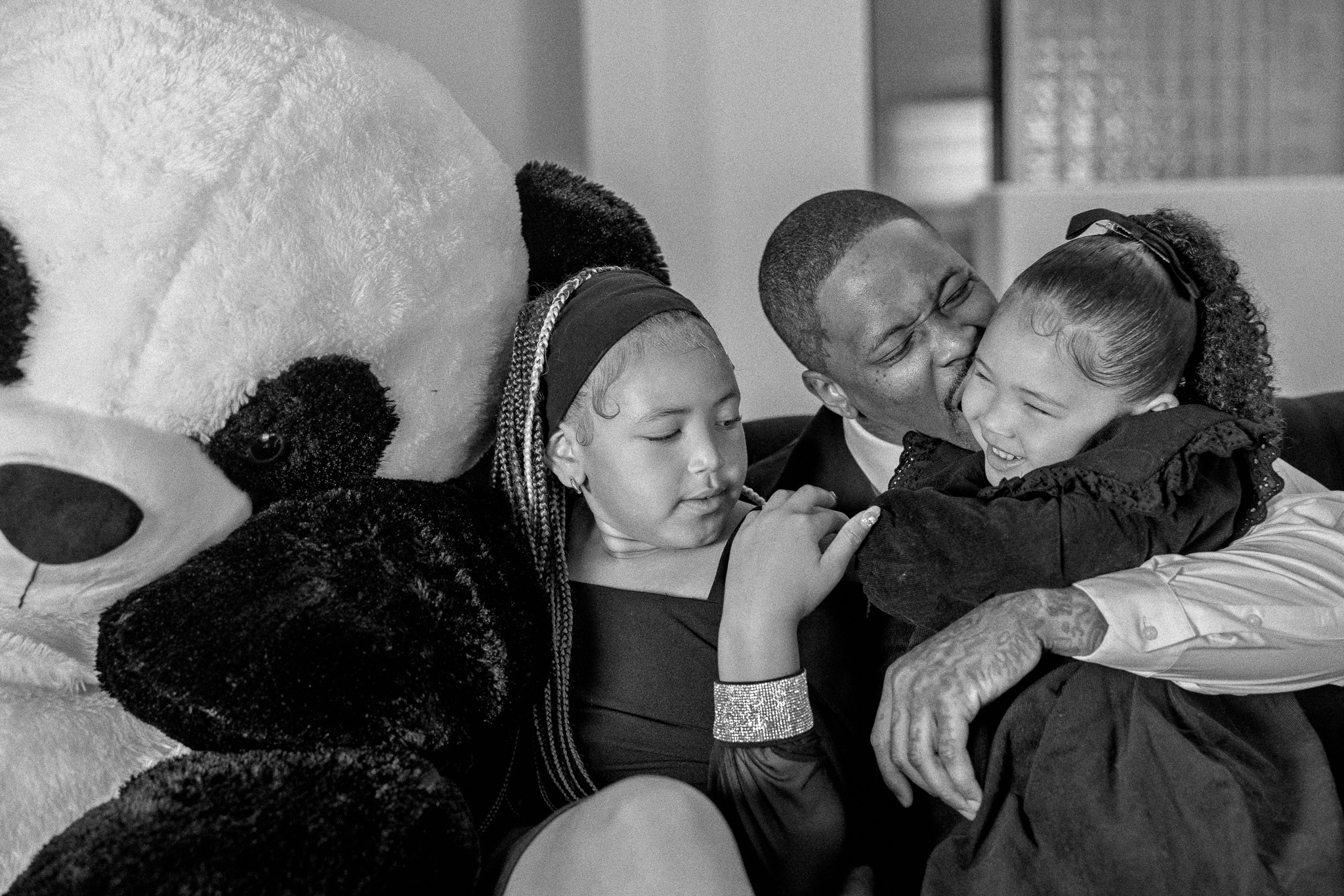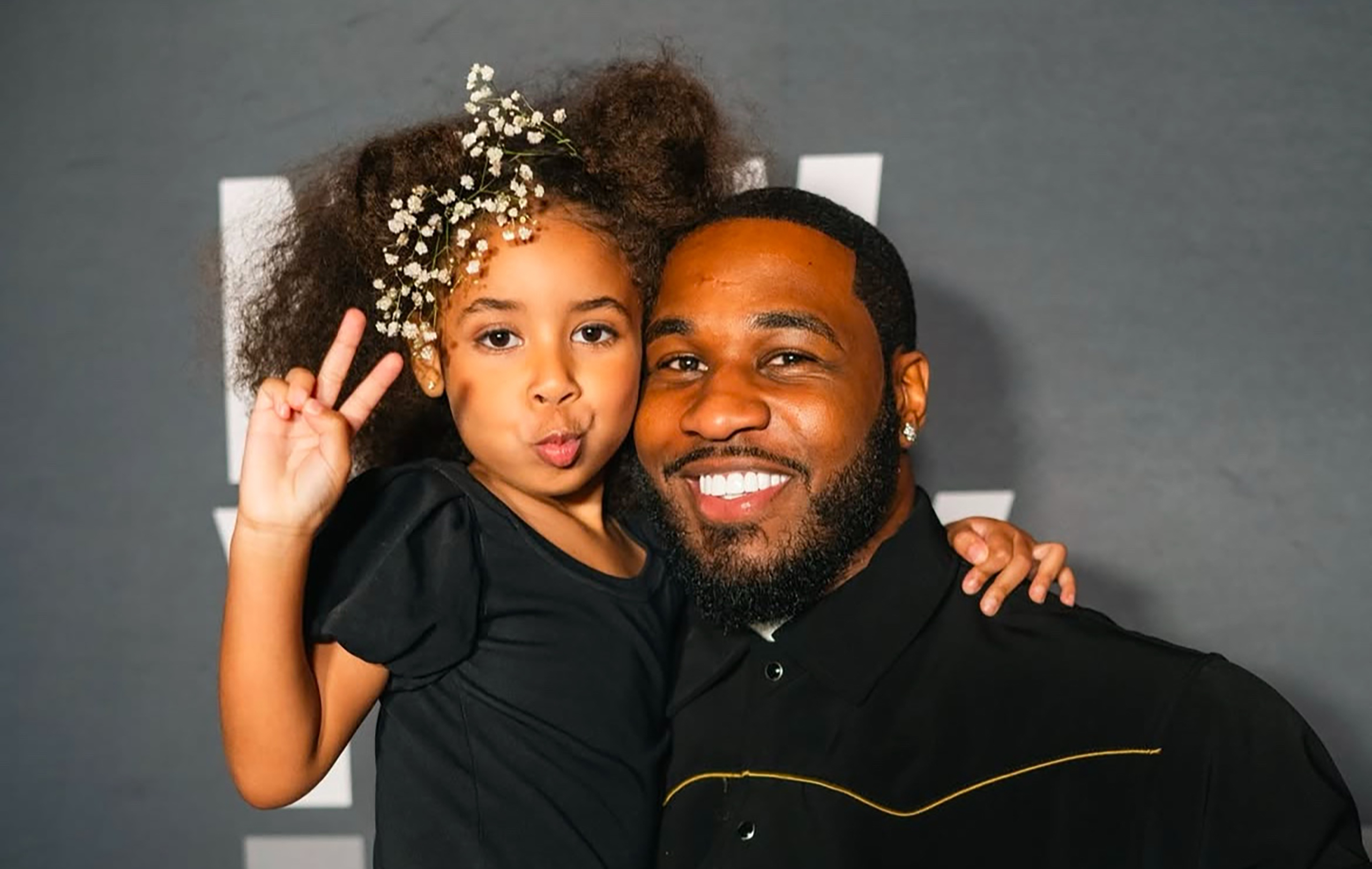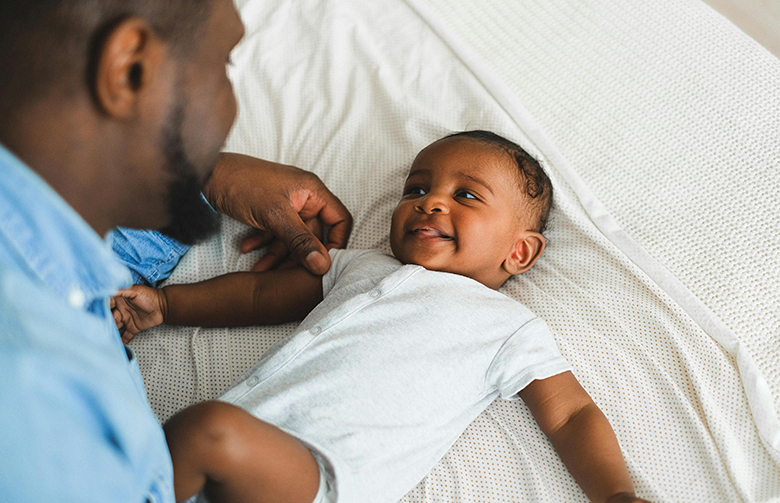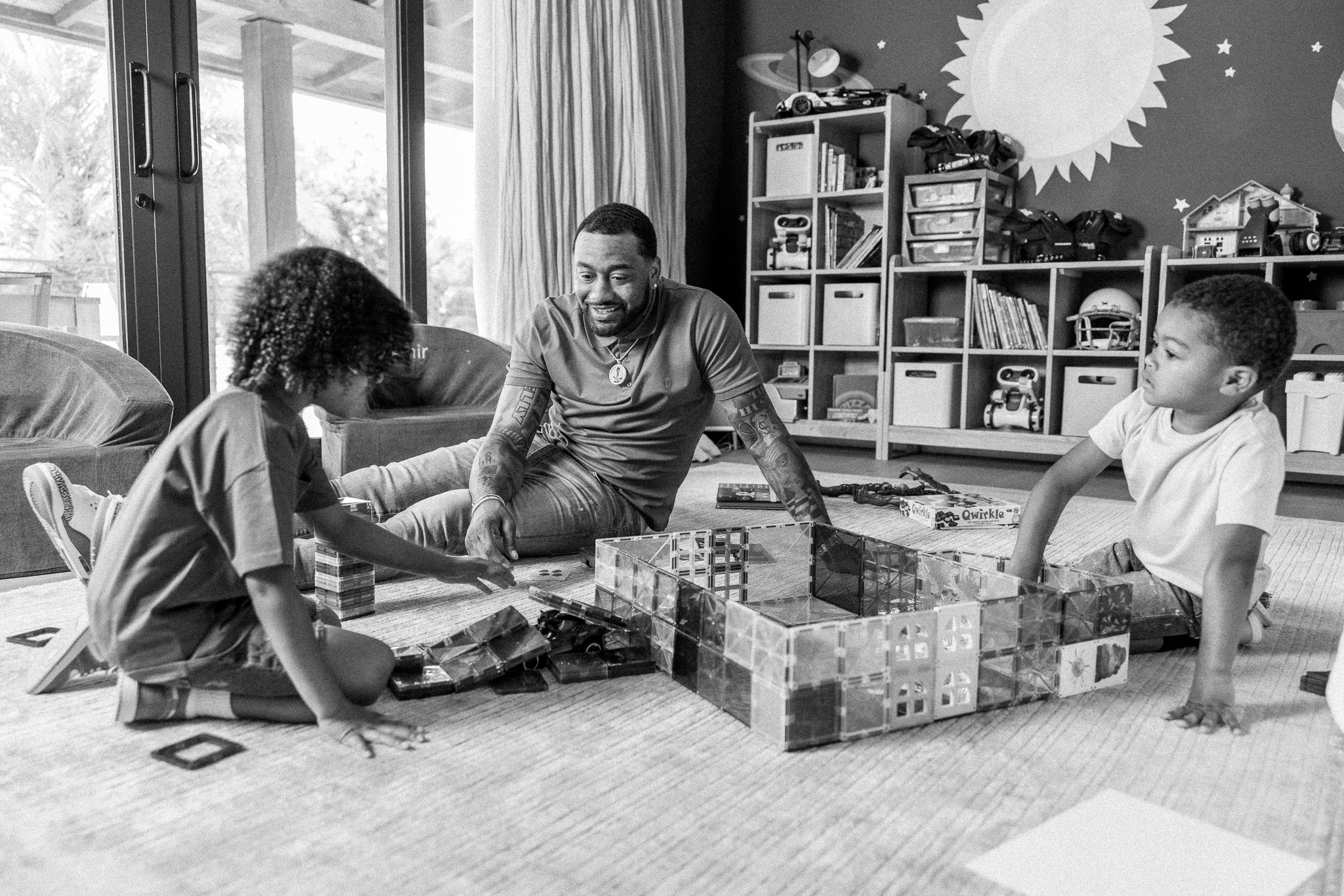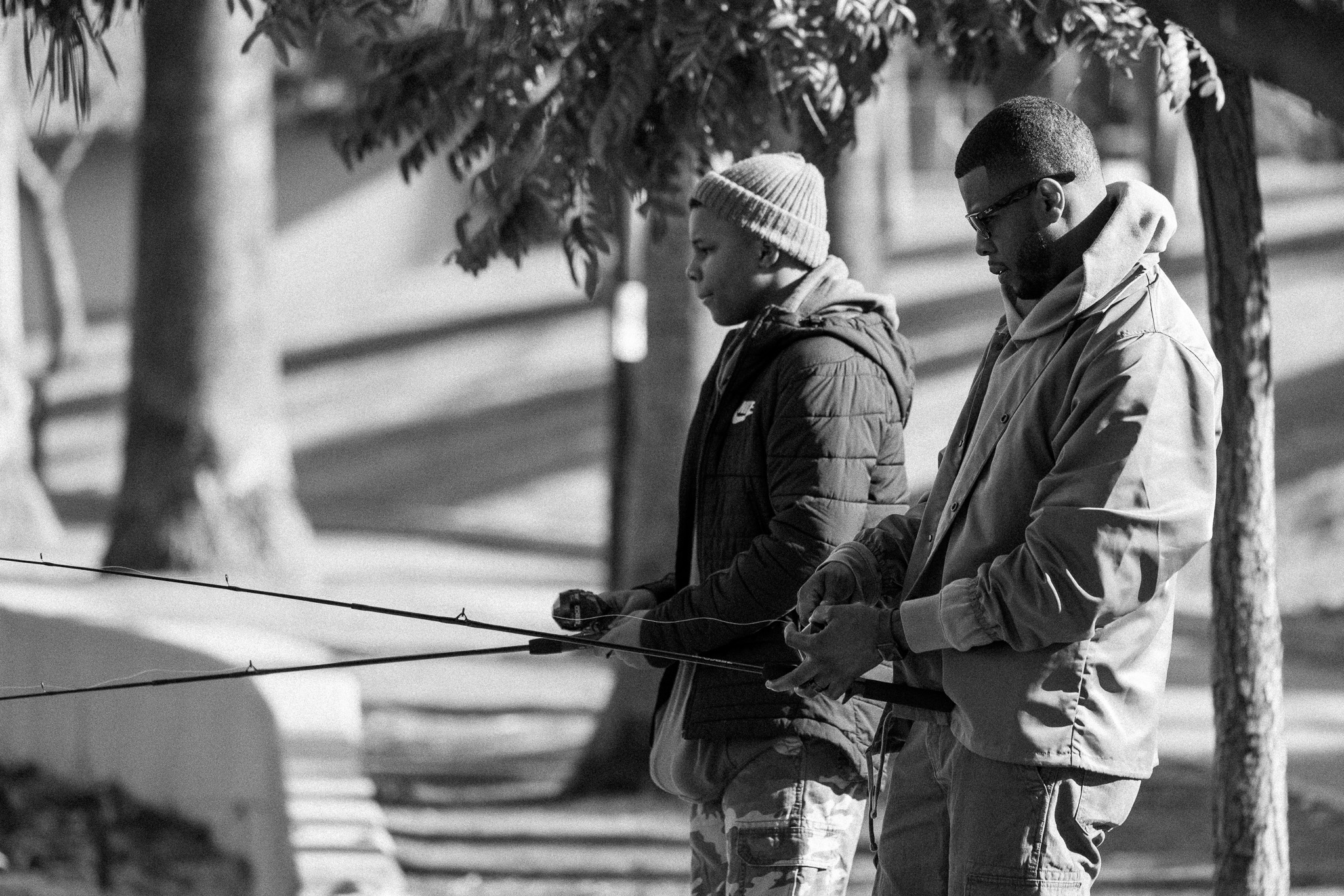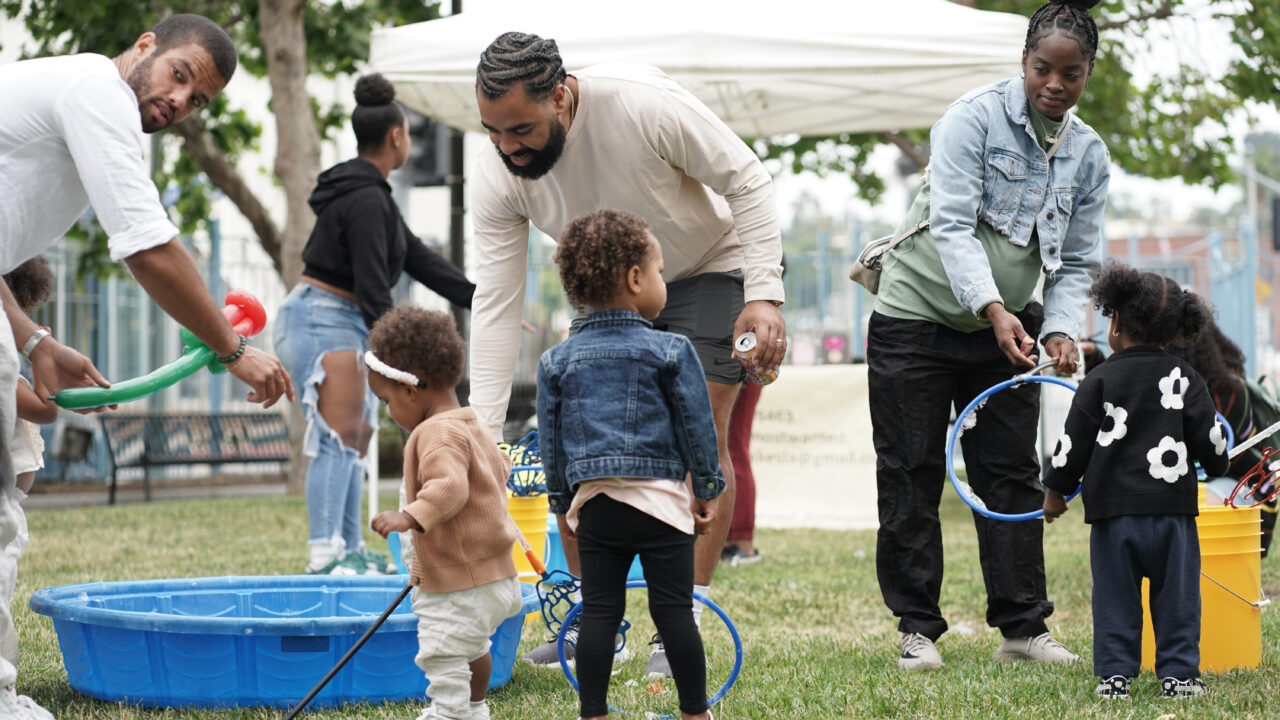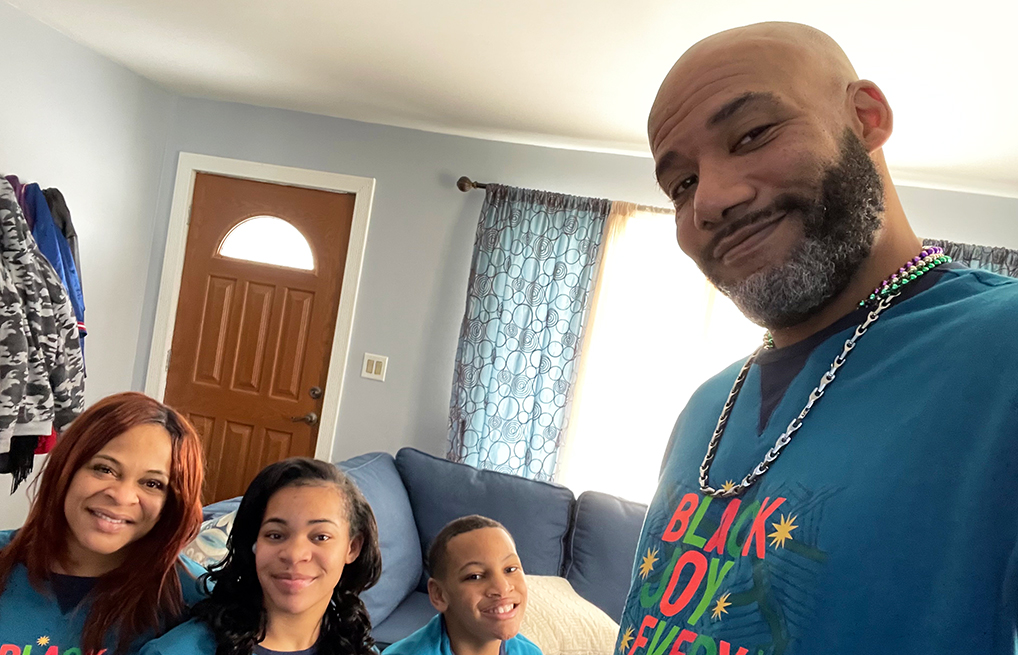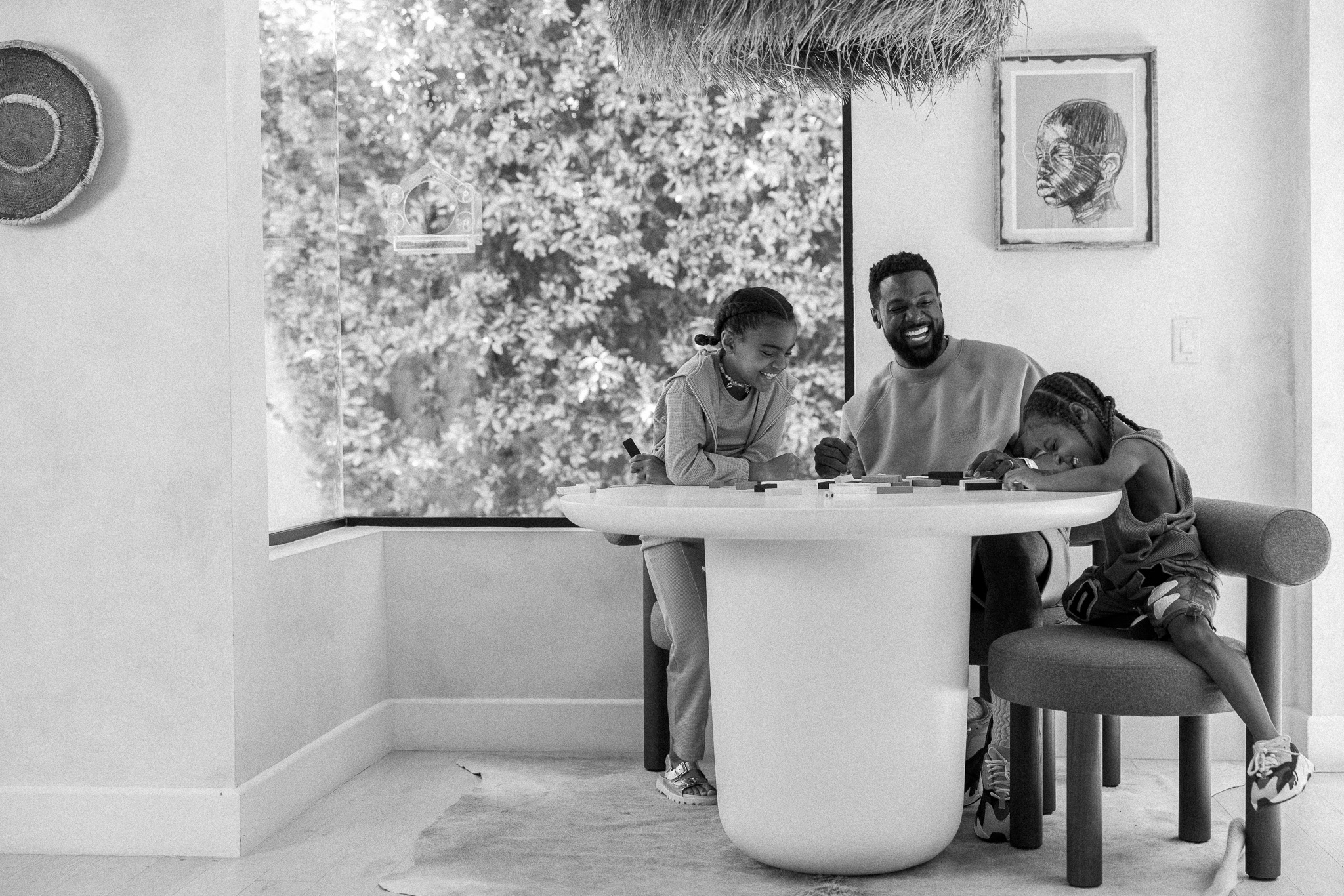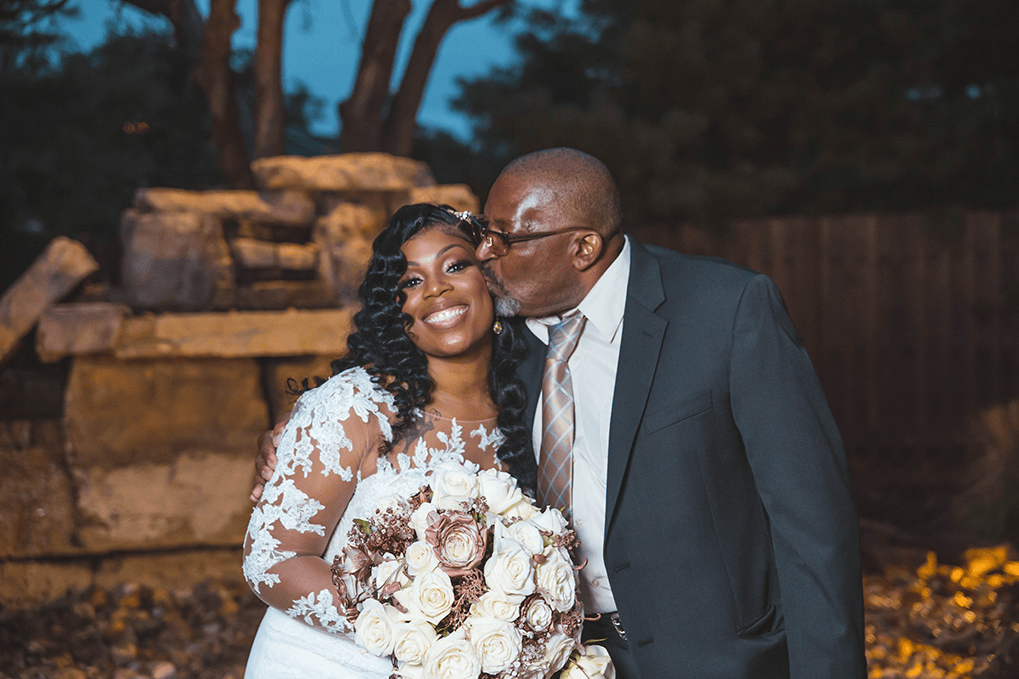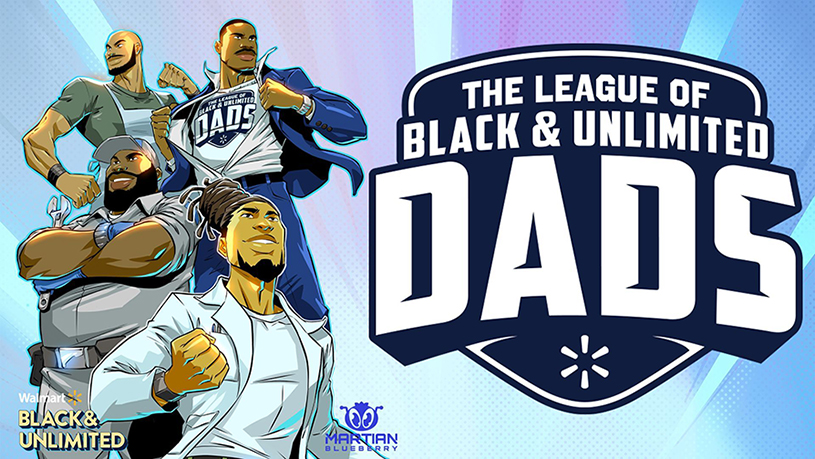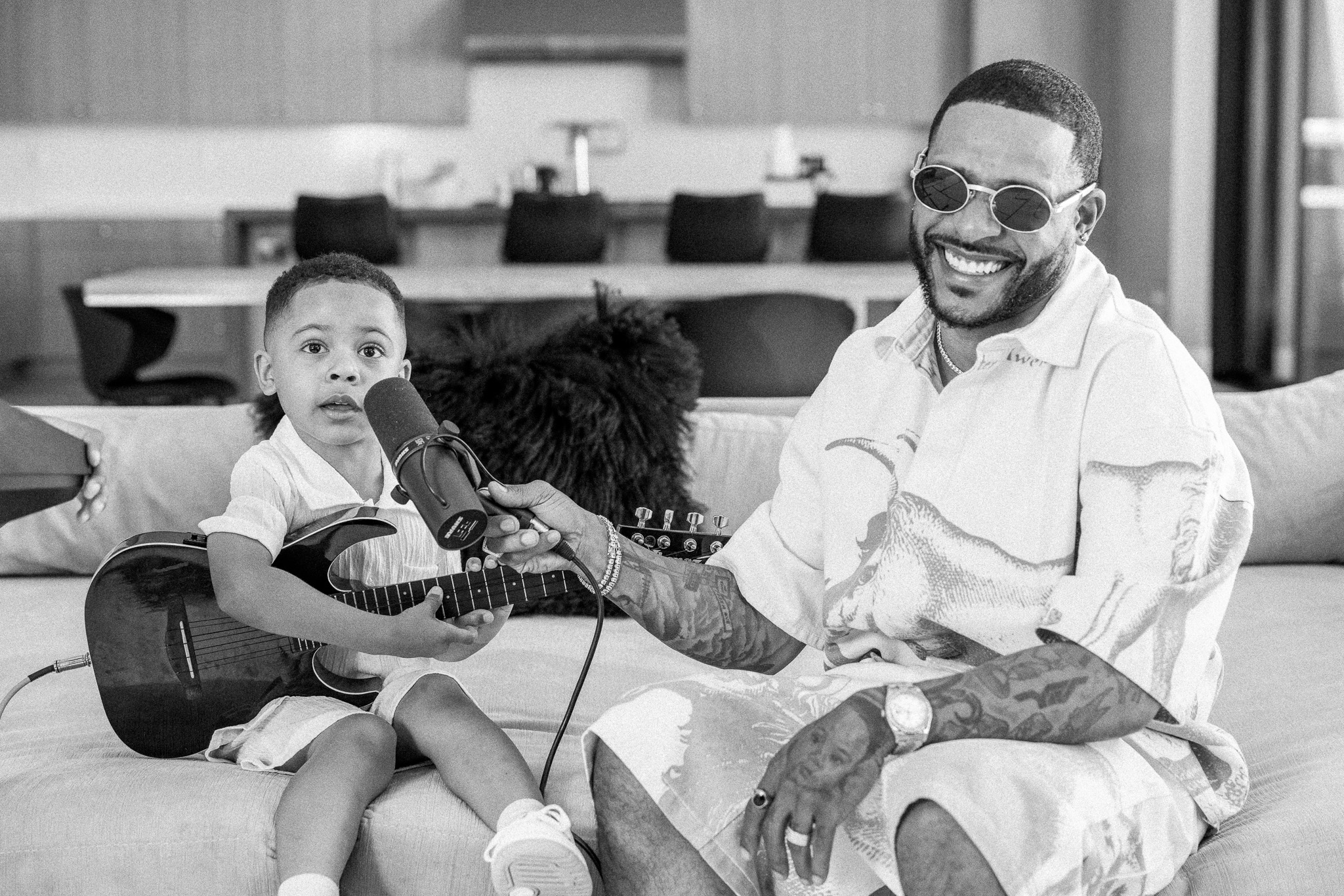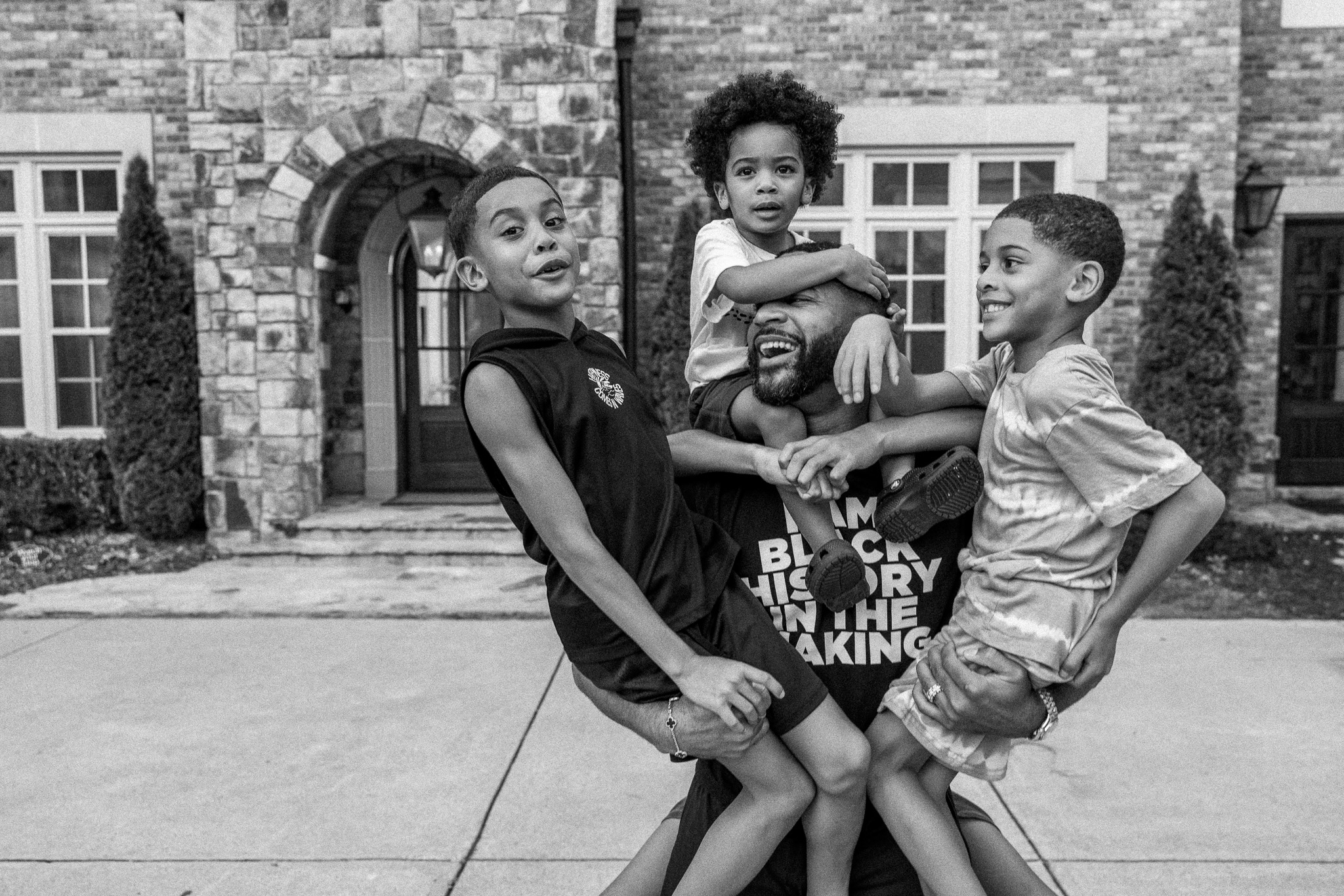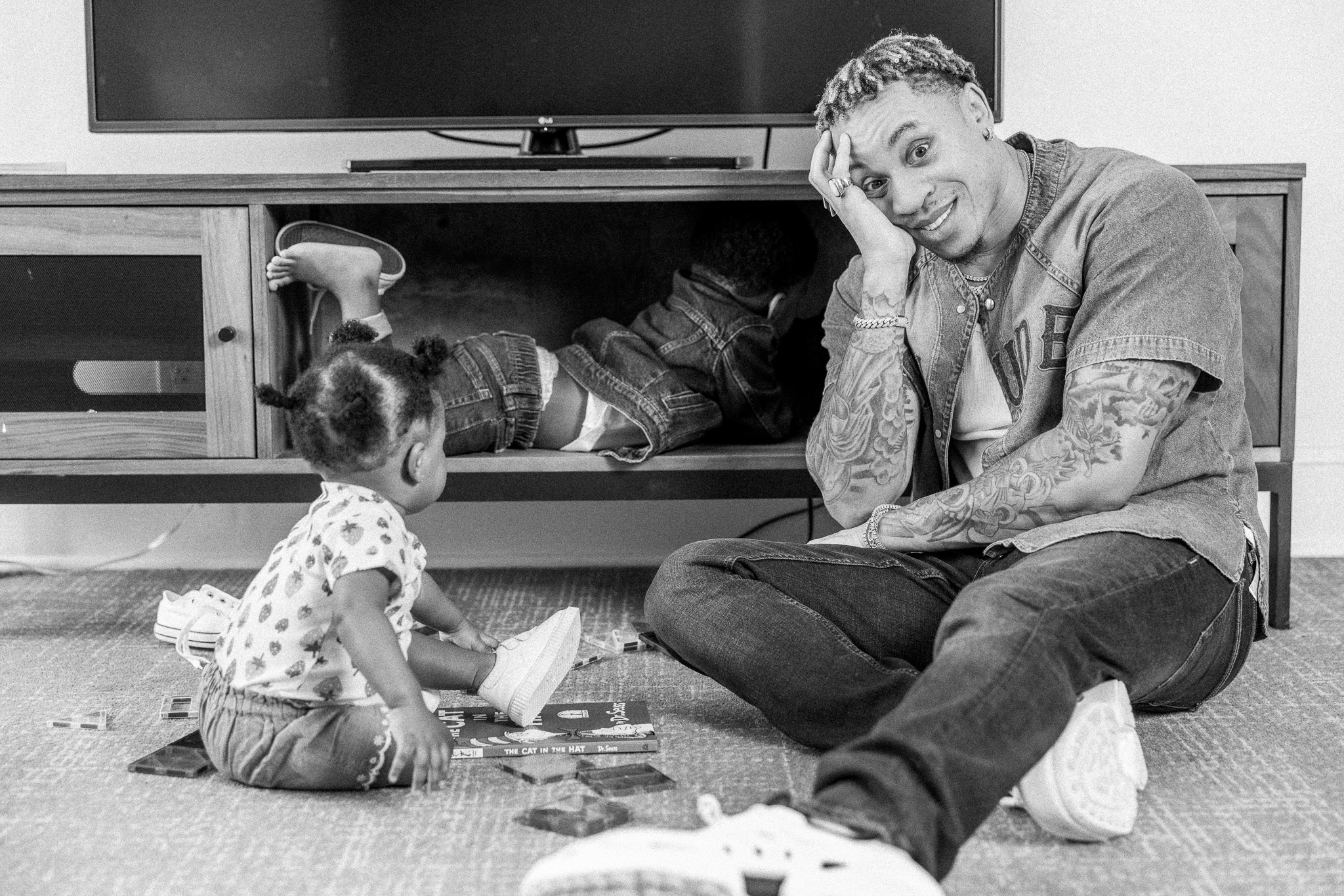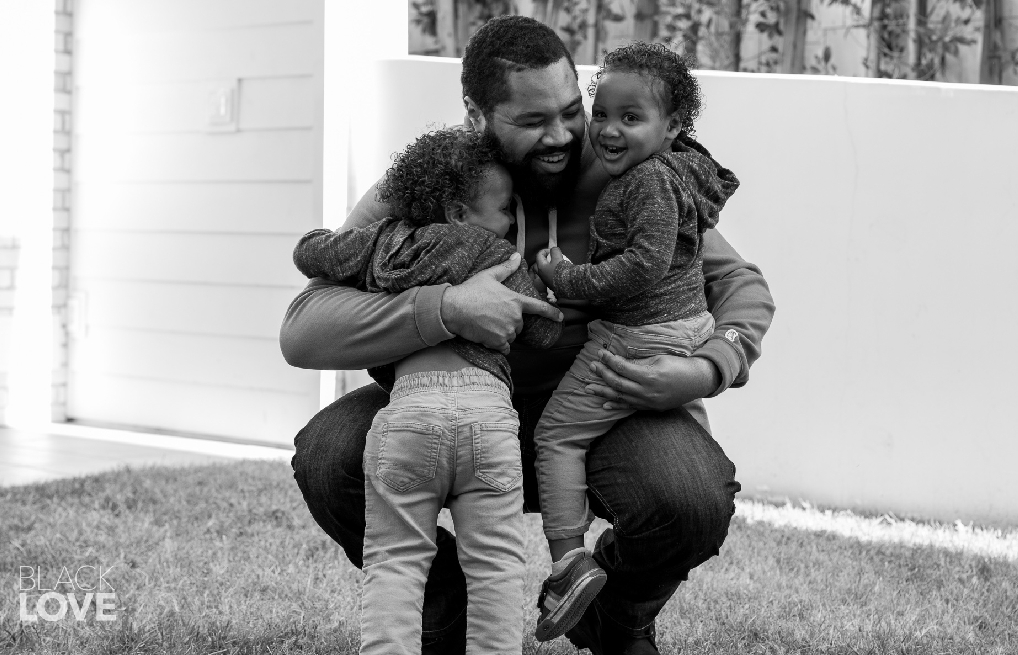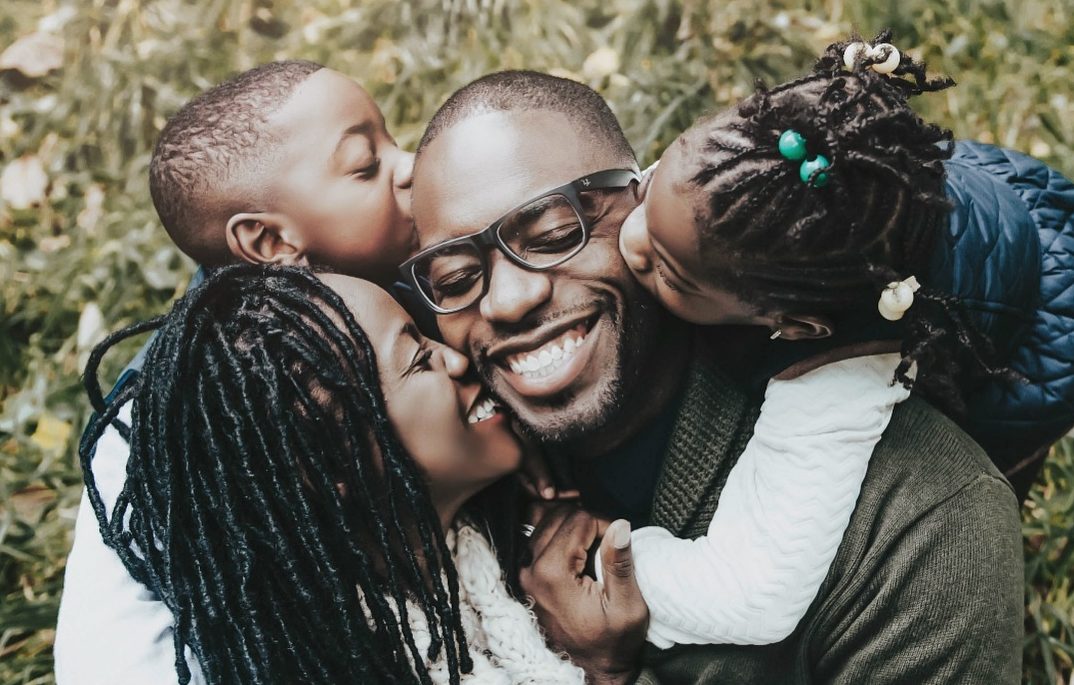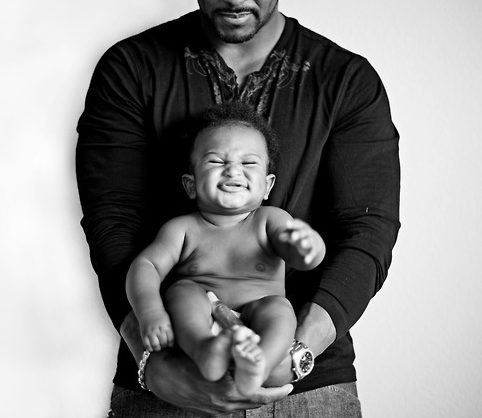Black Love’s Fatherhood Block Party was a celebration that embodied the essence of community!
Navigating this beautiful struggle of parenting, we’re still learning and doing the best we can. I’m humbled by my husband's patience and lessons learned daily.
This one’s for the fathers. Consistently being there. Consistently doing the big and small things for and with your babies.
“The Crossover” soared as a beautiful portrayal about how Black love is reflected through romance, brotherhood, and parenthood.
When I think of fatherhood, I look at it from four different perspectives. I view fatherhood through the lenses of a daughter, a sister, a co-parent, and a wife.
The message behind their videos is more than just cheer stunts. The deeper meaning is daddy always has you.
Black dads are given superhero status in the upcoming short film “The League of Black and Unlimited Dads,” created in partnership with Walmart and producer/director Carl Jones.
In Father Noir, Eric Bellinger opens up about the joys and challenges of raising his boys and his biggest accomplishment is raising these two young kings.
Devale Ellis is many things to many people — an actor, former NFL wide receiver, mentor — but his most important role is that of a father and husband.
Two years into fatherhood, Rotimi is a burst of love and wisdom. Black fatherhood is often shaped by negative stereotypes, but Black Love’s Father Noir series is here to share a different narrative.
“Black Dads: Beyond Present” showcases four men who talk about everything fatherhood, from how they found out they were going to be dads to figuring out how to parent in a way that’s different from how they were raised.
Father Noir is a visual memoir celebrating Black Fatherhood during the month of June, created by Black Love founder and father of three boys, Tommy Oliver.
Philadelphia 76ers shooting guard Glenn Robinson III opens up about co-parenting, communication, and the power of therapy for Black men, "We're afraid to be vulnerable."
Owning the imperfections of his childhood helped the 35-year-old singer on his journey of personal growth, forgiveness, and becoming the ultimate dad.
If you're not in communication with your father right now, know it's okay and that your journey to reconciliation is a personal one.
The first time I sat on my therapist’s couch, she asked me “So, what are you here to work on?” Outside of my recent adjustment from college to the real world, my biggest priority was love. Knowing that fatherhood and building a family were two life goals I was firm on, I told her that I wanted to figure out how to build a long-lasting relationship. Up until therapy I only loosely understood how to navigate sexuality in a conservative southern state, much less, how to spend the rest of my life with someone. And although I understood monogamy wasn’t the only way, it was my way, and I was okay with that. My fear, however, was that I had never gotten the chance to exist among long-term relationships or healthy marriages, so how was I to build something I’d never seen before? Could I hope for a successful marriage when I didn’t know what it looked like? My family solidified my love and respect for women. Out of the seven women who played a role in my upbringing, six of them were single mothers or widows. I was able to see firsthand the absolute magic that exuded from these women when faced with adversity, and I strive every day to embody that for myself. On the flipside, this upbringing created gaps in other areas of my experience, specifically romantic relationships. There was a time in third grade or so that my mom introduced me to her friend “Charles,” but before I could understand what was really going on, sis had to cut him loose (#NoneOfMyBusiness). This experience felt so far from the experience of friends and classmates whose entire existence occurred around a marriage. They saw affection and intimacy up close and personal morning, noon, and night, not just on movies and television shows. How could I replicate that experience? How could I find a husband and build a lifelong partnership when I was at such a disadvantage? Hint: I wasn’t at a disadvantage. Since I can remember, I’ve always been pushed to never settle for misunderstanding. My philosophy is: when the answers are all around you, you find them, you don’t sit in confusion and twiddle your thumbs. So, I would compulsively study and observe the things around me and analyze my experiences to understand how to close this “gap” in my upbringing. Over time it meant that I would look closely at the relationships of family and friends, get a degree in communication, become generally obsessed with all things related to interpersonal communication, and prioritize my spiritual growth. In that time, what I found was that the disadvantage I thought I was working against was actually irrelevant. The fact that I didn’t grow up in a two-parent home or surrounded by successful marriages was going to make no difference to my own relationships as long as I maintained a certain level of self-awareness. As a matter of fact, it may have helped me. That entire time I was convinced that the answers to my problem could be found in successful marriages. I thought for sure that they had the secret sauce of how to live happily ever after, but the only thing I learned was that there is no secret sauce and there is no one answer. Actually, it showed me that the way you build a successful partnership is by first understanding yourself. I’ve witnessed relationships and partnerships go to the wayside, and sometimes even wondered if the people who grew up around successful marriages were working too hard to recreate what they had seen as opposed to building something new. See, what I took away from everything that I had worked to understand was that marriage is about two people coming as whole (not partial) individuals into a partnership. It’s not enough to recreate what you’ve seen, you must get comfortable with the idea of building something you’ve never seen before. I had convinced myself that marriage was something that happened to you, and my lack of luck in relationships meant that I was just going to try and try again until marriage happened to me. Then I realized, that’s not how any of this works.
more articles
Psychologist and relationship therapist Dr. Alduan Tartt shares five tips on how to thrive while balancing career and family life.
Black Love is kicking off Fatherhood Fridays with our resident crib-to-college dad Jeff Johnson and exploring parenting mistakes, unconditional love, and more.
Accomplished actor Sean Patrick Thomas reveals how he teaches his children mental toughness, what stresses him out about fatherhood, and more to Black Love featured author Jeff Johnson.
Russell Hornsby is a brilliant and talented actor whose focus on mastering his craft eclipses everything in his life -- that is, everything except for his family. He has blown me away with the fathers he has portrayed, including in the Netflix series Seven Seconds and, most recently, the feature film The Hate U Give, and I wanted to talk about the father he is in real life.
Is great fathering really about allowing my children to take the lead on how they should be parented?
When I understand that there is no curse that needs to be broken, and there is no debt that I need to repay, fatherhood becomes an extraordinarily beautiful gift. While in 1st grade, I had a friend by the name of Jon. I remember going to his house for scheduled play dates and being excited to spend the day with the only kid I knew who had a Super Nintendo. But outside of the toys and fun, what was most notable about being over at Jon’s house, was when his Dad would come home from work. He was a big and tall police officer who would enter that house with loud boot steps and would immediately lay his badge and gun on the kitchen table. Jon and his baby brother would run and jump into his arms, and I would tag along behind them hoping to get a hi-five, and maybe a glimpse of what it feels like to have a Dad. Thinking back to those days as a child, I don't recall ever being upset at my father for not being in my life. But sadly, I remember having this deep longing to be proud of him, just like Jon was of his Dad. And now at the age of 33, I realize I have brought that baggage into my role as a father. When I first learned I was going to have a son, there was an immense feeling of pride that was quickly overwhelmed by fear. Deep down inside, I believed I was flawed for being a fatherless son, and I immediately knew I had to do everything in my power not to pass down those shortcomings.
I think part of the joy of having a son is teaching him what you know as a man, good or bad. Part of the joy of having a daughter is the challenge of trying to teach her what you know while trying to also understand the opposite sex and how different we are.

